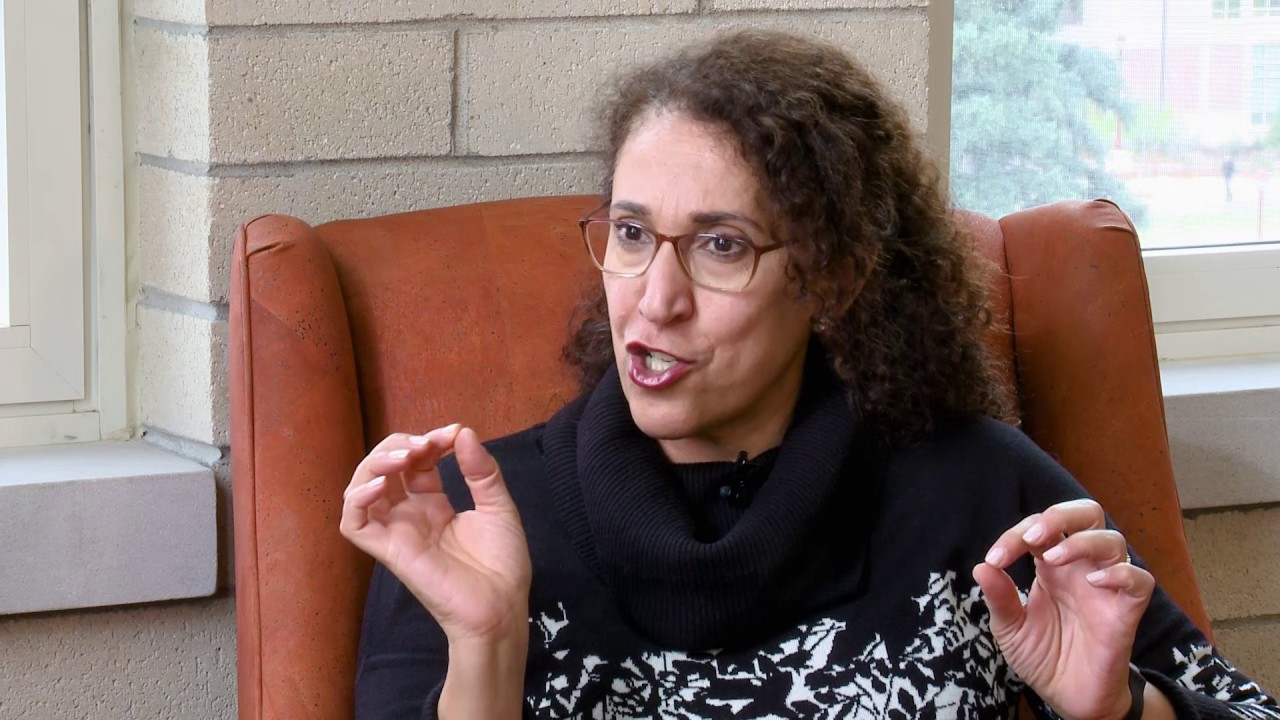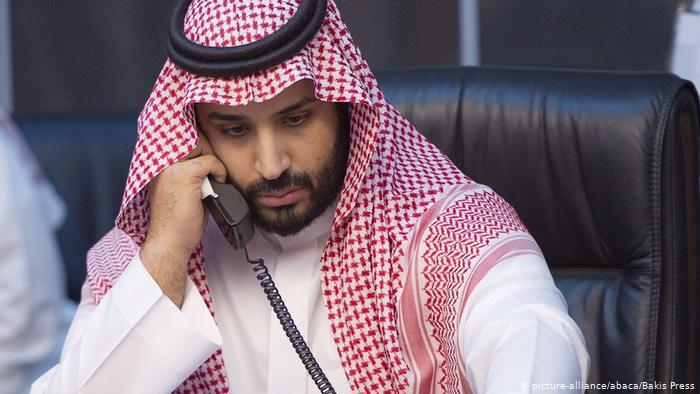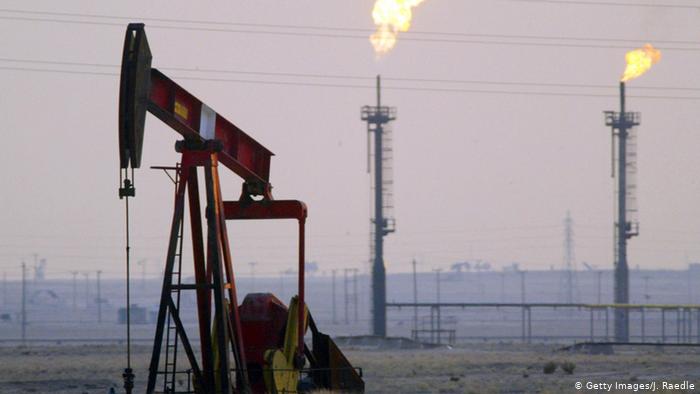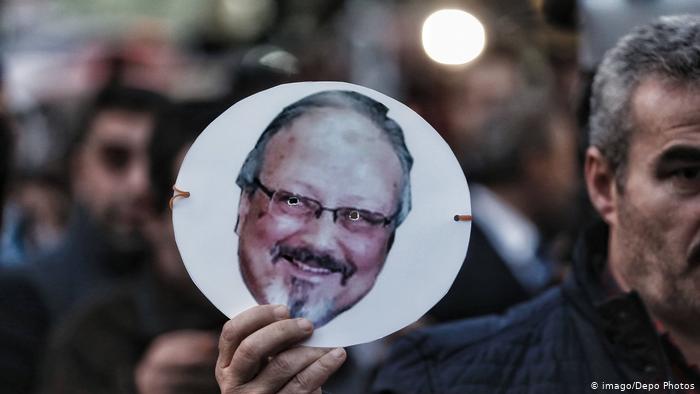"Gradual change is a myth, Saudi society is ready"

Ms Al-Rasheed, you recently founded something that in reality doesn't exist: a Saudi Arabian political party. Who are you hoping to address with this?
Al-Rasheed: It is a party! We are a group of exiled academics and activists who decided that it was the right time to found a political party. Our main message is for the people in Saudi Arabia. We call on Saudi Arabia to institute democracy as a political system to replace the absolute monarchy.
You have called it the National Assembly Party or NAAS. What kind of legal status does it have?
Al-Rasheed: One of our first objectives was to register the party as a non-profit organisation in Britain because two of us are based in London.
Will you register the group under Saudi law as well?
Al-Rasheed: Political parties are banned in Saudi Arabia. At the moment, it is impossible to engage in any kind of political activism in Saudi Arabia. There is no platform or any kind of forum to share ideas or visions for a better future.
In your founding statement you call for an elected parliament, separation of powers, an independent judiciary and the rule of law. Is this a call for revolution?
Al-Rasheed: It's up to the people, but it's not a call for revolution. We did not call on the people to take to the streets. We are trying to mobilise people peacefully, through a strategy that addresses the limitations of political activism. It would be unethical for us to ask people inside Saudi Arabia to put their lives in danger, given the repression they face. People have been arrested for simply tweeting critical opinions.

Given the limitations in Saudi Arabia, what exactly is NAAS intending to do?
Al-Rasheed: We aim to provide an alternative source of information for Saudis. Our goal is to raise awareness of what democracy means. The terms 'democracy' and 'political party' are taboo in Saudi Arabia. Democracy is seen as blasphemy coming from the West to corrupt the pious. Political parties are seen as schism, leading to discord and chaos. In our view, calling for democracy is the only way to save our society from disintegration and from power struggles within the ruling family.
Saudi Arabia is living through a critical time. Oil prices are at an all-time low and the economy is still very dependent on oil revenues. Debt is increasing. Is the kingdom still stable?
Al-Rasheed: The country faces two challenges: the first is the cycle of oil revenues, the rise and fall of oil prices that has been going on for half a century. The second is COVID-19. Most likely, Crown Prince Mohammed bin Salman will become king after the death of King Salman. But he is going to live in fear because he has failed to get the consensus of the royal family. MbS rules them by force: over the last three years, various princes have been in and out of detention. In addition, MbS lacks the support of both Saudi Arabia's financial and traditional elites that have always in the past supported the state and its government. This will create ambiguity at the very top level and could cause a power vacuum.
A narrative of positive change has been evident in international media since the rise of MbS. The country is opening up to tourists, concerts and cinemas have been reintroduced. Most prominently, of course, is the issue of women driving: in 2017 the government finally granted women the right to drive.
In order to understand this, we need to go back to 2011 when the Arab world began demanding political change. Since then, King Salman and MbS have been trying to change Saudi Arabia's image. MbS in particular was seen as a solution to this challenge. He is young and appears to be promoting liberal reforms, but in reality, he has launched a counter-revolution. Obviously, he had to do what appeals to the West. This is where the demands put forward by Saudi women and men – women driving or more employment of women – come in. MbS has done exactly what Saudis were fighting for. The contradiction is: while introducing the reforms, he put the activists who called for them in prison.

Does MbS empower women?
Al-Rasheed: No, the regime uses women as symbols of modernity. By appointing women, it does not empower them. MbS has put women in positions that are extremely visible in order to show how progressive the regime is. Look at Reema bint Bandar, the Saudi ambassador in Washington. Why is there a princess in Washington, while Loujain al-Hathloul, a young Saudi activist, is still in prison? Appointment is not empowerment. Moreover, there are still serious issues that need to be addressed, such as the right to freedom of political expression.
Loujain al-Hathloul advocated for women's right to drive and called for an end to the Saudi system of male guardianship. Why is someone like her deemed dangerous?
Al-Rasheed: The feminist movement has crossed an important divide in Saudi society. It's not a regional or tribal opposition, nor a sectarian or Islamist one, yet it appeals to a wide section of society. These activists started to engage in national politics, mobilising people from all walks of life to call for civil and political rights, not to mention gender equality.
Many in Saudi Arabia have told me that in order to achieve change small steps are needed, in compliance with Saudi Arabia's conservative Islamic and Arab tribal tradition. What's your take on that?
Al-Rasheed: On 23 September, the regime celebrated ninety years of Saudi state formation. Ninety years is a long time and we still don't have any institution that represents the people. Instead of a national assembly, we have an appointed consultative council. We do not have an elected government. We do not have freedom of expression or assembly. So how long do we have to wait? Another ninety years?
Isn't gradual change still better than no change?
Al-Rasheed: Okay, they allowed women to go see a football match. But you can do that everywhere. Gradual change is a myth, Saudi society is ready! Look at all the prisoners of conscience. Over the last twenty years, so many Saudis have signed petitions and ended up in prison. Saudis are able to imagine a better political future. But there is no discussion of any kind of political reform. MbS managed to get journalists, especially in the West, and PR companies to promote his reforms as if they were the end. His reforms, the narrative goes, are what Saudis asked for. But what about those who are in prison simply for speaking out against torture, for example?
Two years ago in October, Jamal Khashoggi was killed by Saudi agents in Istanbul, prompting an international outcry. What has the murder done to Saudi Arabia's reputation?
Al-Rasheed: It was the murder of the century and it has done an irreparable damage to Saudi Arabia. MbS is actually running out of propaganda to bring back confidence in his leadership.
Many have blamed MbS for being behind the murder, but we still haven't seen evidence that he knew about it, or even ordered Khashoggi's murder personally. What's your interpretation of what happened in Istanbul?
Al-Rasheed: Khashoggi was not just a journalist. You have to move away from the Washington Post Khashoggi construct. Khashoggi was a man of the palace. He had worked closely with Saudi intelligence, above all with the former director of the intelligence service, Prince Turki al-Faisal. Khashoggi must have had enough information to potentially get Saudi Arabia into serious trouble. They eliminated him because he defected from the regime. He had moved to the U.S. and could have released information about Saudi Arabia – about the inner circle. He wasn't simply someone who wanted democracy. In fact, Khashoggi didn't call for democracy in Saudi Arabia. It's not that he was the greatest democrat.
Did you know him personally?
Al-Rasheed: I met him in London when he was the spokesperson of Turki al-Faisal during the prince's time as ambassador in London.

You seem very critical of Khashoggi.
Al-Rasheed: I'm just stating the facts. I studied his books and articles. Khashoggi called for democracy in the Arab World, but he also wrote: I'm not asking for democracy in Saudi Arabia, because the rule of Al Saud is good. We only need public parks, he argued, we need employment for the young people and freedom of expression. It was absolutely crazy. That doesn't justify his murder, of course. It was a horrible crime, absolutely unbelievable. But this is what happens when you defect from a totalitarian system.
You are probably the best-known scholar on Saudi politics and society on the international stage. At the same time you are an outspoken critic of the Saudi regime. Were you afraid after Khashoggi's murder?
Al-Rasheed: We were all very scared. We know he can send his death squads.
Was this the first time you had felt threatened?
Al-Rasheed: I was threatened way back in 1991, when I finished my PhD in Britain and wrote my first book. Actually, King Salman who was governor of Riyadh at the time warned me through the Saudi ambassador in Paris, where my father was living. The ambassador called my father, apologised and then said: I have a message for you from the Royal Court. The message was: if your daughter publishes her book, we will take 'disciplinary action'. That's how they put it.
Did you publish the book?
Al-Rasheed: Of course. If you live in fear, you might as well go back to Saudi Arabia and be silent. But it was the first time I became aware of the fact that if I continue to write, my life will be in danger. The book was merely a history about the Rashidi emirate in northern Arabia.
It was your ancestors who once ruled that emirate. In the 1920s, before the kingdom of Saudi Arabia was founded, they fought a war against Al Saud. Does this family background affect your work?
Al-Rasheed: Saudis accuse me all the time of wanting to return to my family's glory days. But my project really isn't about going back to any kind of emirate or dynasty. We've had enough of that. We hope the NAAS party will enable us to rise above the tribal and sectarian divides to which Saudis have been subjected for so long.
Interview conducted by Jannis Hagmann
© Qantara.de 2020
Madawi al-Rasheed is a Fellow of the British Academy and visiting professor at the Middle East Centre of the London School of Economics. She has published numerous books on Saudi Arabia and writes for international and Arab media outlets. In December, her book "The Son King" will be published by Hurst in which she focuses on Saudi Arabia under the rule of Mohammed bin Salman.
